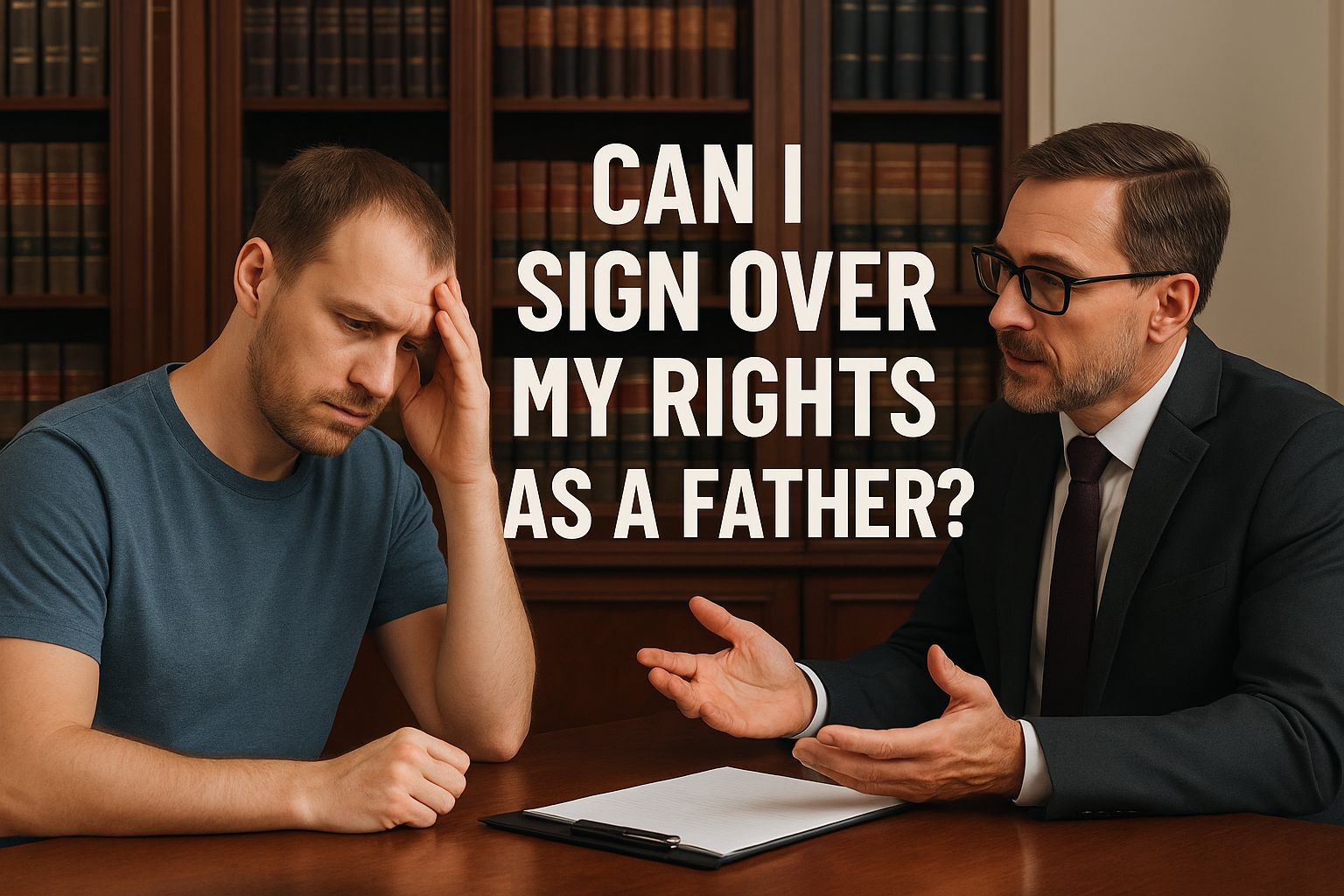If you’re asking yourself, “Can I sign over my rights as a father?” the quick answer is technically a yes, but it can only happen under very specific legal circumstances. As a father, you can’t simply walk away from parental rights because of financial stress or personal issues.
Courts usually allow it only when another person (like a step-parent) is ready to adopt, or when it’s in the best interest of the child. That means while you may want to give up your rights, the decision is not yours alone to make. It’s ultimately up to the court.
What happens after a father signs over his rights?
The father loses all legal rights and responsibilities to the child, including decision-making and visitation, though financial obligations may remain.
Let’s break it down so you know exactly what this means for you.
But wait oh, why’d you want to sign over your rights and go out of your child’s life, cos that’s what this will eventually lead to?

What It Really Means to Sign Over Your Parental Rights
When you hear about “signing over your rights,” it’s not as simple as signing a piece of paper. Legally, it means giving up your right to make decisions for your child and ending your responsibilities as a parent. Most courts won’t approve this unless there’s someone else who can step into that role.
For example, when my cousin’s friend went through this years ago, he thought he could “sign off” because he wasn’t in a position to pay child support and he was sad about his divorce. The judge told him that it wasn’t possible unless the mother’s new husband (his kids’ stepdad – such a wonderful man) was willing to adopt. In other words, the law protects the child’s best interests above everything else.
Can a mother force a father to sign over his rights?
A mother cannot force this decision alone. Only a court can terminate parental rights.
In most cases, you can only give up your rights if
- There’s an adoption (step-parent or otherwise).
- The child is being placed into foster care or under state custody.
- The court decides that termination of your rights is the best option for the child’s safety and well-being (in cases of abuse, neglect, or abandonment).
But here’s something important: signing over rights doesn’t automatically erase unpaid child support. Even if your rights are terminated, you may still owe money for the time before the court’s decision.
Key Takeaway: It’s Possible, But Rarely Easy
So, can you sign over your rights as a father? Yes, but only in rare and court-approved circumstances. It’s not a way to escape child support or avoid responsibilities. It’s a legal process meant to protect children, not parents.
Here’s what you should remember
- Courts rarely allow it unless there’s another parent or guardian ready to take your place.
- Signing over rights usually ends visitation and decision-making power.
- Financial obligations don’t automatically disappear.
- Every case is different, so talking to a family lawyer is your best next step.
If you’re thinking about signing over your parental rights? Talk to a family law attorney before you take any step—your child and your future deserve clarity.
Credits & Seeking Help! LawHelp.org
